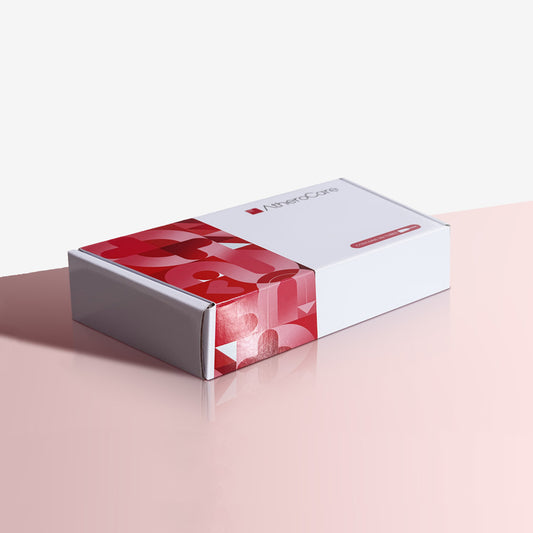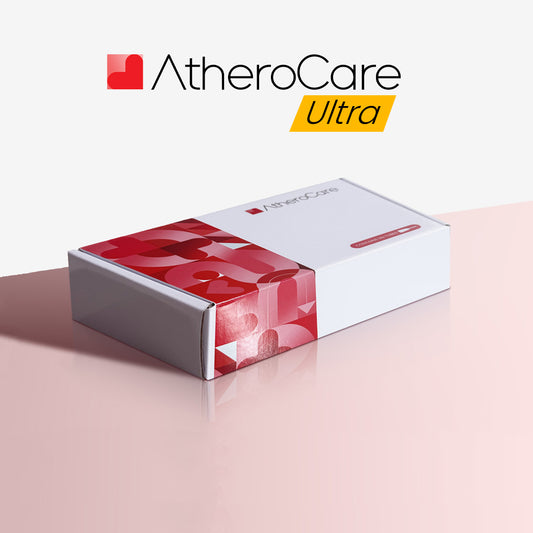Blocked arteries and why they matter: Blocked arteries, also known as arterial blockages or atherosclerosis, are one of the most common underlying causes of heart disease, stroke, and other serious conditions. When plaque — a mixture of cholesterol, fats, calcium, and other substances — builds up inside artery walls, it restricts blood flow and places added strain on the body. Understanding both the symptoms and the causes of blocked arteries is the first step to protecting your long-term wellbeing.
What causes arterial blockages: The main driver of blocked arteries is plaque buildup. Over time, factors such as a diet high in unhealthy fats, smoking, stress, high blood pressure, diabetes, and lack of exercise all damage the inner lining of the arteries. This allows “bad” LDL cholesterol to oxidise and harden inside the vessel walls, creating plaque. The body responds with inflammation, which makes the problem worse. Over years, these blockages can narrow or completely obstruct blood flow.
Additional risk factors to be aware of: Beyond diet and lifestyle, genetics also play a role in atherosclerosis. People with a family history of heart disease or high cholesterol may develop blockages earlier. Other contributing factors include insulin resistance, low magnesium levels, poor sleep, and chronic stress. All of these can accelerate the formation of arterial plaque and increase the likelihood of cardiovascular problems.
Key symptoms to recognise: While blocked arteries can remain silent for years, they often produce clear warning signs once blood flow is significantly reduced. Common symptoms include:
- Chest pain (angina): Pressure, squeezing, or tightness in the chest, often triggered by physical activity or stress.
- Shortness of breath: Difficulty catching your breath, even during light activity, may signal reduced oxygen reaching the heart.
- Persistent fatigue: Ongoing tiredness without a clear cause, as the heart works harder to pump blood through narrowed arteries.
- Numbness or weakness in the limbs: Tingling, coldness, or weakness in arms or legs, sometimes more noticeable on one side of the body.
- Dizziness or lightheadedness: A sign the brain isn’t receiving enough oxygen-rich blood.
- Heart palpitations: An irregular or rapid heartbeat may indicate the heart is under stress due to restricted circulation.
Why these symptoms matter: Ignoring these early warning signs can lead to serious health events, including heart attacks and strokes. In many cases, the first noticeable symptom of blocked arteries is an emergency event. This is why being proactive about your heart health is so important.
The dangers of untreated plaque buildup: If arterial blockages are not addressed, they can cut off the oxygen supply to vital organs. This increases the risk of heart attack, stroke, kidney damage, and peripheral artery disease (which affects blood flow to the legs and can result in severe pain or loss of mobility). Blockages in the carotid arteries supplying the brain can also raise the risk of life-threatening strokes.
New research and emerging solutions: Traditional medicine often focuses on managing arterial disease with statins, stents, or surgery. However, new scientific findings are exploring additional approaches. Studies on compounds like cyclodextrins suggest they may help dissolve cholesterol crystals and reduce plaque formation. At the same time, natural strategies such as increasing magnesium intake, improving diet quality, exercising regularly, and addressing chronic stress continue to show strong benefits for artery health.
Protecting your arteries for the long term: While some risk factors like age and genetics cannot be controlled, lifestyle choices play a powerful role in arterial health. Positive steps include:
- Eating a balanced, nutrient-rich diet with plenty of vegetables, whole grains, and healthy fats.
- Exercising regularly to strengthen the cardiovascular system and improve circulation.
- Managing stress with mindfulness, meditation, or other relaxation techniques.
- Prioritising good sleep to help the body repair and reduce inflammation.
- Monitoring blood pressure, cholesterol, and blood sugar with the guidance of a healthcare professional.
Final thoughts: Blocked arteries are one of the most serious yet preventable health issues of modern life. By recognising early warning signs, understanding the root causes, and making proactive lifestyle choices, you can significantly reduce your risk. With ongoing research into both traditional and emerging approaches, the future looks brighter for supporting artery health in a safe and sustainable way.







